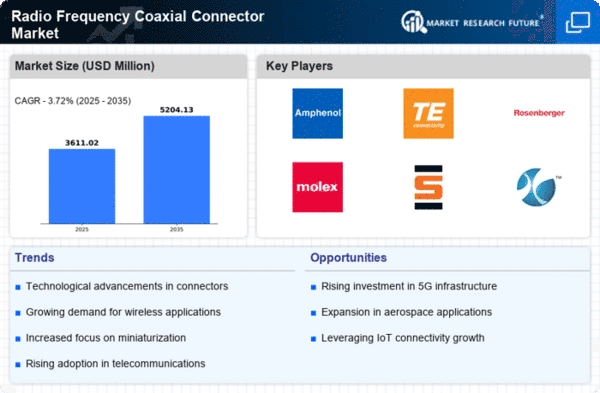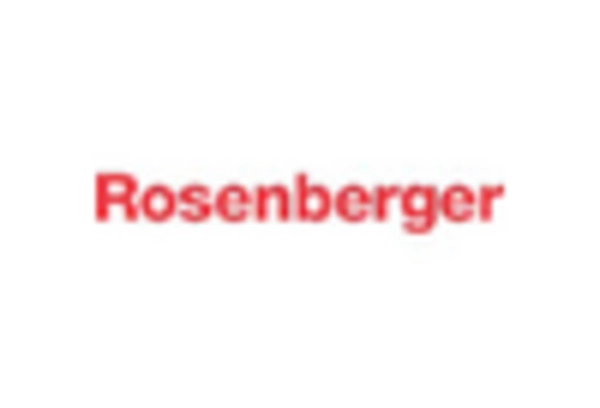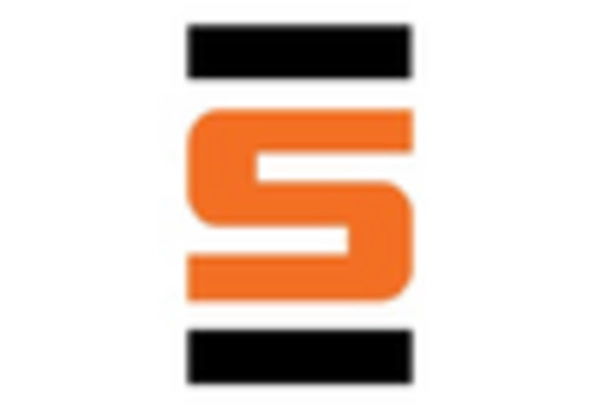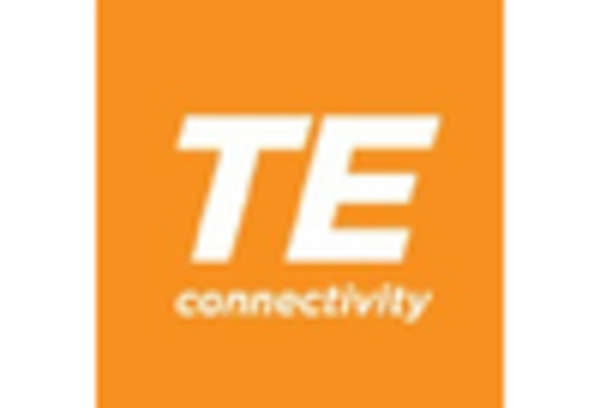The Radio Frequency Coaxial Connector Market is characterized by a dynamic competitive landscape, driven by technological advancements and increasing demand across various sectors, including telecommunications, aerospace, and automotive. Key players such as Amphenol (US), TE Connectivity (US), and HUBER+SUHNER (CH) are strategically positioned to leverage innovation and expand their market presence. Amphenol (US) focuses on enhancing its product portfolio through continuous research and development, while TE Connectivity (US) emphasizes partnerships to bolster its supply chain capabilities. HUBER+SUHNER (CH) appears to be concentrating on sustainability initiatives, which may resonate well with environmentally conscious consumers, thereby shaping the competitive environment towards a more innovation-driven approach.In terms of business tactics, companies are increasingly localizing manufacturing to reduce lead times and optimize supply chains. The market structure is moderately fragmented, with several players vying for market share. This fragmentation allows for a diverse range of products and services, yet the collective influence of key players like Rosenberger (DE) and Molex (US) is significant, as they continue to innovate and adapt to changing market demands.
In November Rosenberger (DE) announced the launch of a new line of high-frequency coaxial connectors designed for 5G applications. This strategic move not only positions the company to capitalize on the growing 5G market but also underscores its commitment to innovation in high-performance connectivity solutions. The introduction of these connectors is likely to enhance Rosenberger's competitive edge, as demand for reliable 5G infrastructure continues to rise.
In October Molex (US) expanded its manufacturing capabilities in Asia by investing in a new facility aimed at increasing production efficiency. This expansion is indicative of Molex's strategy to localize production and respond swiftly to regional market demands. By enhancing its manufacturing footprint, Molex may improve its supply chain reliability, which is increasingly critical in today's fast-paced market environment.
In September TE Connectivity (US) entered into a strategic partnership with a leading telecommunications provider to develop next-generation connectivity solutions. This collaboration is expected to drive innovation and accelerate the deployment of advanced communication technologies. Such partnerships are becoming essential as companies seek to differentiate themselves in a competitive landscape that increasingly values technological advancement and collaboration.
As of December current competitive trends indicate a strong emphasis on digitalization, sustainability, and the integration of AI technologies within the Radio Frequency Coaxial Connector Market. Strategic alliances are shaping the landscape, fostering innovation and enhancing product offerings. The shift from price-based competition to a focus on technology, reliability, and sustainability is evident, suggesting that companies will need to continuously innovate to maintain their competitive differentiation in the evolving market.















